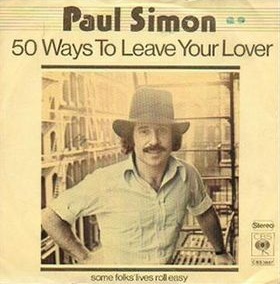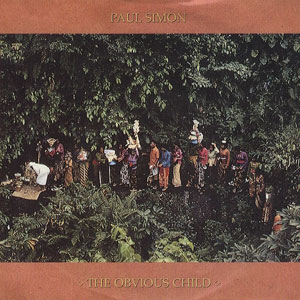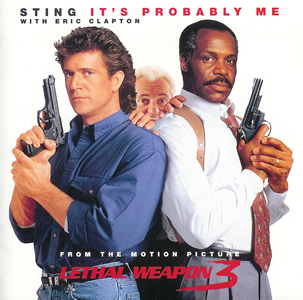
Surfacing is the fourth studio album by Canadian singer-songwriter Sarah McLachlan. Released in 1997, it was produced by McLachlan's frequent collaborator, Pierre Marchand. It was released in July 1997, coinciding with the start of McLachlan's Lilith Fair tour. The album reached the top position on the Canadian RPM 100 Albums chart, number two on the US Billboard 200 and became her first album to reach the top 50 outside of North America, achieving that in the UK, Australia and the Netherlands. It was certified as Diamond in sales in Canada and as 8× Platinum in sales in the US. Critical reviews were mixed; some of the more positive reviews praised the songwriting, while the album's detractors criticized it as banal and slow.

"Stand by Me" is a song originally performed in 1961 by American singer-songwriter Ben E. King and written by him, along with Jerry Leiber and Mike Stoller, who together used the pseudonym Elmo Glick. According to King, the title is derived from, and was inspired by, a spiritual written by Sam Cooke and J. W. Alexander called "Stand by Me Father," recorded by the Soul Stirrers with Johnnie Taylor singing lead.

"50 Ways to Leave Your Lover" is a song by the American singer-songwriter Paul Simon. It was the second single from his fourth studio album, Still Crazy After All These Years (1975), released on Columbia Records. Backing vocals on the single were performed by Patti Austin, Valerie Simpson, and Phoebe Snow. The song features a recognizable repeated drum riff performed by drummer Steve Gadd.

"You Can Call Me Al" is a song by American singer-songwriter Paul Simon. It was the lead single from his seventh studio album, Graceland (1986), released on Warner Bros. Records. Written by Simon, its lyrics follow an individual seemingly experiencing a midlife crisis. Its lyrics were partially inspired by Simon's trip to South Africa and experience with its culture. Released in August 1986, "You Can Call Me Al" became one of Simon's biggest solo hits, reaching the top five in seven countries.

"Kodachrome" is a song by the American singer-songwriter Paul Simon. It was the lead single from his third studio album, There Goes Rhymin' Simon (1973), released on Columbia Records. The song is named after Kodak's now-discontinued reversal film brand Kodachrome.

"Woman in Love" is a song performed by Barbra Streisand and taken from her 1980 album Guilty. The song was written by Barry and Robin Gibb of the Bee Gees, who received the 1980 Ivor Novello award for Best Song Musically and Lyrically. It is her fourth of four Platinum records, and is considered her greatest international hit.

"Xanadu" is the title song from the soundtrack of the 1980 musical film of the same name. Written by Jeff Lynne of the English rock band Electric Light Orchestra (ELO), the song is performed by English-born Australian singer, songwriter and actress Olivia Newton-John, with Lynne adding parenthetic vocals in the style of his other songs on the Xanadu soundtrack, and ELO providing the instrumentation. It was Lynne's least favourite of his own songs. Released as a single in June 1980, it reached number one in several European countries and was the band's only UK number-one single when it peaked there for two weeks in July 1980. It was certified silver by the British Phonographic Industry. It also peaked at number eight on the US Billboard Hot 100.

"The Obvious Child" is a song recorded by American singer-songwriter Paul Simon. It was the lead single from his eighth studio album, The Rhythm of the Saints (1990), released by Warner Bros. Records. Written by Simon, its lyrics explore mortality and aging. The song is accompanied by a performance from Brazilian drumming collective Olodum in a live recording.

"Graceland" is the title song of the album Graceland, released in 1986 by Paul Simon. The song features vocals by The Everly Brothers. The lyrics follow the singer's thoughts during a road trip to Graceland after the failure of his marriage. Actress and author Carrie Fisher, Simon's ex-wife, said that the song referred in part to their relationship.

"Cecilia" is a song by American musical duo Simon & Garfunkel. It was released in April 1970 as the third single from the group's fifth and last studio album, Bridge over Troubled Water (1970). Written by Paul Simon, the song's origins lie in a late-night party, in which the duo and friends began banging on a piano bench. They recorded the sound with a tape recorder, employing reverb and matching the rhythm created by the machine. Simon later wrote the song's guitar line and lyrics on the subject of an untrustworthy lover.

"It's Probably Me" is a song originally released in 1992 as a collaboration by Sting featuring Eric Clapton, Michael Kamen, and David Sanborn. Released from the soundtrack to the action comedy film Lethal Weapon 3 in June 1992, the song reached number 20 on the US Billboard Album Rock Tracks chart and number 12 on Canada's RPM 100 Hit Tracks chart. It was more successful in Europe, peaking at number one in Italy, number four in France, and number six in the Netherlands.

"Loves Me Like a Rock" is a song by the American singer-songwriter Paul Simon. It was the second single from his third studio album, There Goes Rhymin' Simon (1973), released on Columbia Records. It features background vocals from the Dixie Hummingbirds, a Southern black gospel group. Although the lyrics are not typically associated with gospel music, the Dixie Hummingbirds were eager to record the song with Simon, and they recorded their own version soon after for their 1973 album We Love You Like a Rock/Every Day and Every Hour.

"Slip Slidin' Away" is a 1977 song written and recorded by Paul Simon which appears on his compilation album Greatest Hits, Etc. It was one of two new songs to appear on the album, the other being "Stranded in a Limousine". Backing vocals on the song are provided by The Oak Ridge Boys. The song was originally recorded and considered for Simon's 1975 album Still Crazy After All These Years, but Simon decided not to include the song on the finished album. A demo version appears on the 2004 re-issue of the album. The song was also included on Negotiations and Love Songs (1988).

"Hope of Deliverance" is a song by English singer-songwriter Paul McCartney, released in December 1992 as the lead single from his ninth solo studio album, Off the Ground (1993). The rock and Latin song reached number 18 on the UK Singles Chart and became a top-five hit in Austria, Canada, Germany, Italy, Norway, and Switzerland. The song was recorded during sessions for Off the Ground, which took place on 17 July 1992. The overdub session is described in detail by Italian percussionist Maurizio Ravalico in the book Paul McCartney: Recording Sessions (1969–2013).

"Love Is in the Air" is a 1977 disco song by Australian singer John Paul Young. It was written by George Young and Harry Vanda, and released as the lead single from Young's fourth studio album, Love Is in the Air (1978). The song became a worldwide hit in 1978, peaking at No. 3 on the Australian charts and No. 5 on the UK Singles Chart. In the United States, it peaked at No. 7 on the pop chart and spent two weeks at No. 1 on the Adult Contemporary chart, his only U.S. top 40 hit. The song plays at 122 beats per minute, a typical 1970s disco rhythm. At the Australian 1978 King of Pop Awards, the song won Most Popular Australian Single. In 1992, a remix of the song was released and featured on the soundtrack to the Golden Globe-nominated film Strictly Ballroom. A new music video was also produced.

"You Belong to Me" is a song written by American singer-songwriters Carly Simon and Michael McDonald. Originally recorded by McDonald's rock group The Doobie Brothers for their seventh studio album, Livin' on the Fault Line (1977), the song was made famous by Simon when she recorded it for her seventh studio album, Boys in the Trees (1978). A live version of the song from The Doobie Brothers' 1983 album Farewell Tour would later chart on the Pop Singles chart at No. 79 in August 1983.

"I Ain't Gonna Stand for It" is the second single from Stevie Wonder's 1980 album, Hotter Than July. It reached number four on the Billboard R&B singles chart and number 11 on the Hot 100. It also hit number 10 on the UK Singles Chart. The song is famous for Wonder's imitation of a seasoned country-and-western crooner and his inspiring drumming. Charlie and Ronnie Wilson of The Gap Band provide backing vocals on the song. It was covered by Eric Clapton in 2001.

"Gone at Last" is a song by the American singer-songwriter Paul Simon. It was the lead single from his fourth studio album, Still Crazy After All These Years (1975), released on Columbia Records. Phoebe Snow and the Jessy Dixon Singers provide guest vocals, with Snow receiving credit on the single release.

Roger Prud'homme, better known by the stage name of Martin Stevens, was a Canadian pop singer prominent in the disco era. He was most noted as a two-time Juno Award nominee for Best Selling Single, receiving nominations at the Juno Awards of 1979 for "Love Is in the Air" and at the Juno Awards of 1980 for "Midnight Music".

The singles discography of English singer Cliff Richard consists in excess of 200 singles, of which 159 singles have been released in the UK in varying vinyl, CD, cassette and digital formats. Listed alongside the UK singles in the discography below are a further 20 singles which were released in other territories, as well as 22 singles which were sung in German and only released in German-speaking countries.



















